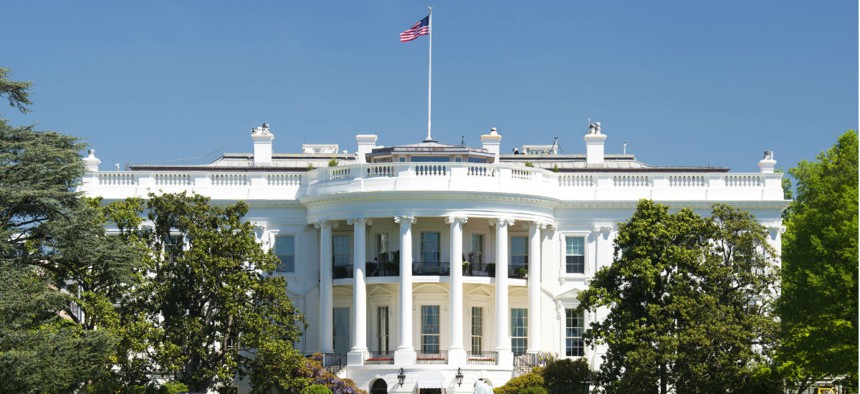
By Andrea Izzotti / Shutterstock.com
Trump Finally Nominates Key Labor Authority Appointee
The post responsible for bringing unfair labor practice complaints to the board that adjudicates labor-management disputes has sat vacant for more than two years.
More than two years into his administration, President Trump has announced that he will nominate someone to serve as general counsel to the Federal Labor Relations Authority: Catherine Bird.
Among other duties, the FLRA general counsel is responsible for vetting and bringing forward unfair labor practice cases for consideration by the agency’s board. Last year, federal employee groups bemoaned the fact that the White House had not named its pick to fill the role, alleging the inaction was a purposeful choice to stop the FLRA from weighing in as the Education Department unilaterally implemented a new contract over the union’s objections and as other departments and agencies cut work-life programs like telework without consulting labor groups.
Bird is currently the principal deputy assistant secretary for administration at the Health and Human Services Department. She previously was the deputy general counsel for the HHS assistant secretary for administration.
The nomination comes at a critical time for the FLRA. The agency’s board recently came under fire as a union representing Defense Department teachers filed a lawsuit accusing it of “unprecedented” systemic bias, where in arbitration cases, which do not require the intervention of the general counsel, members frequently overturned arbitrators’ decisions, almost uniformly siding with agencies in the process.
The announcement also comes on the heels of news that as part of the Trump administration’s plan to reorganize the Office of Personnel Management, shipping its component offices to the General Services Administration, the Defense Department and the Executive Office of the President, officials will seek legislation to overhaul collective bargaining in the federal sector.
Among the proposals in that plan is granting the OPM director, now an official within GSA, the ability to “intervene or otherwise participate” in an FLRA case if the director believes “an erroneous decision will have a substantial impact on civil service law.” Federal employee unions have blasted the proposal as an attempt to strip the FLRA of even the appearance that it is an independent arbiter on disputes between labor and agency management.
And last month, the FLRA issued a request for amicus briefs on whether and how it could reconsider how it rewards attorneys’ fees in arbitration cases, suggesting it may move to overturn decades-old precedent.







